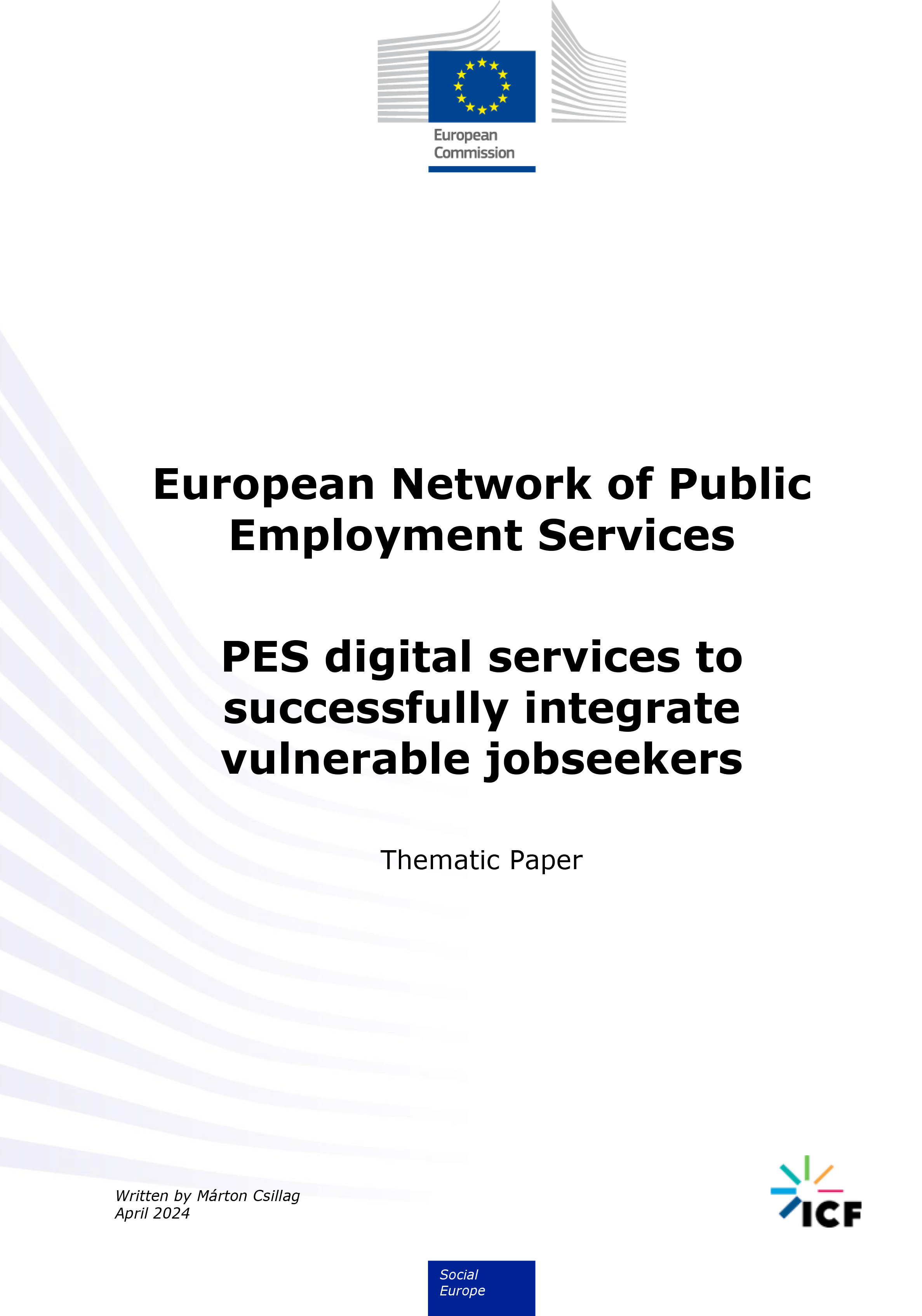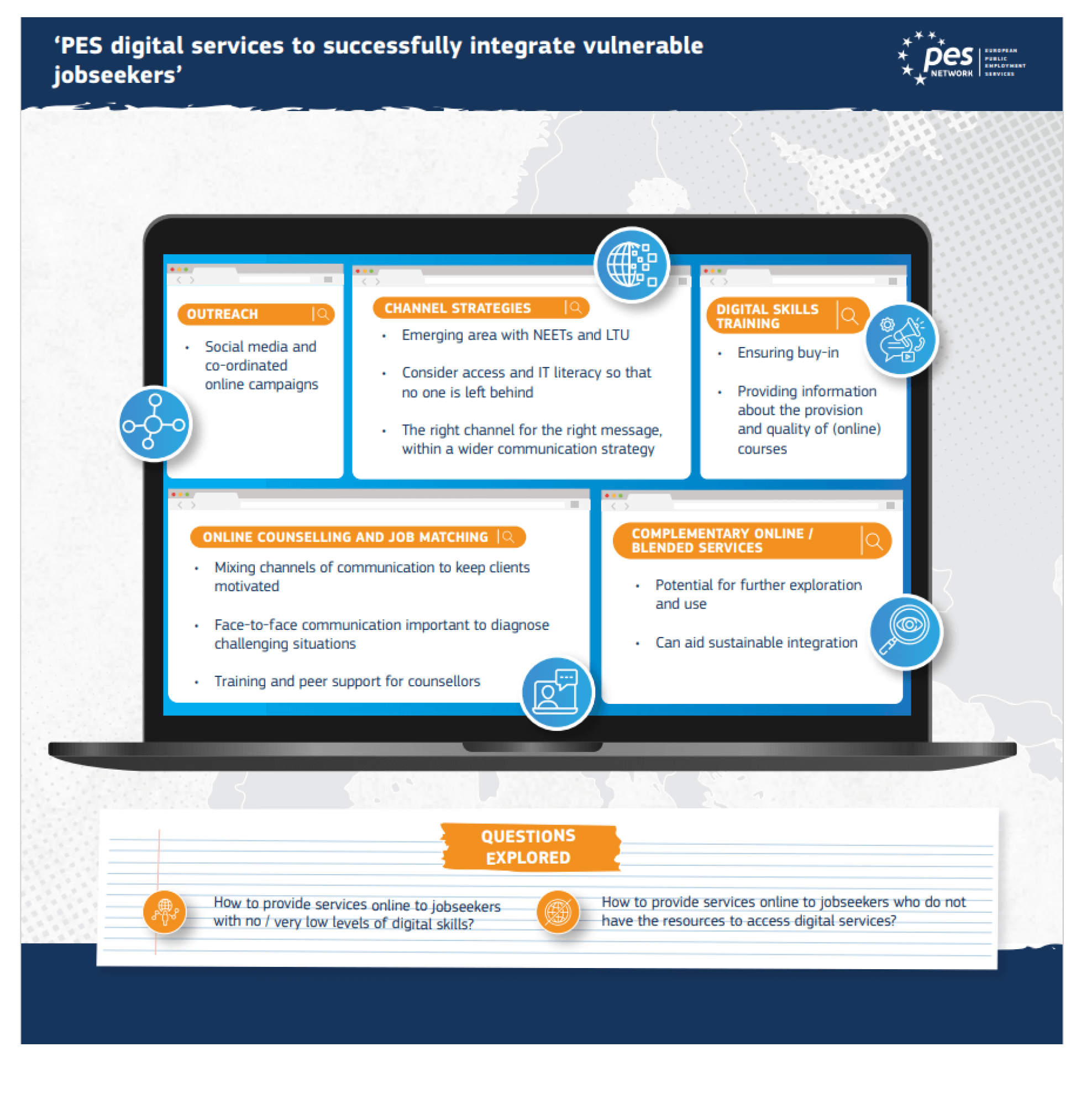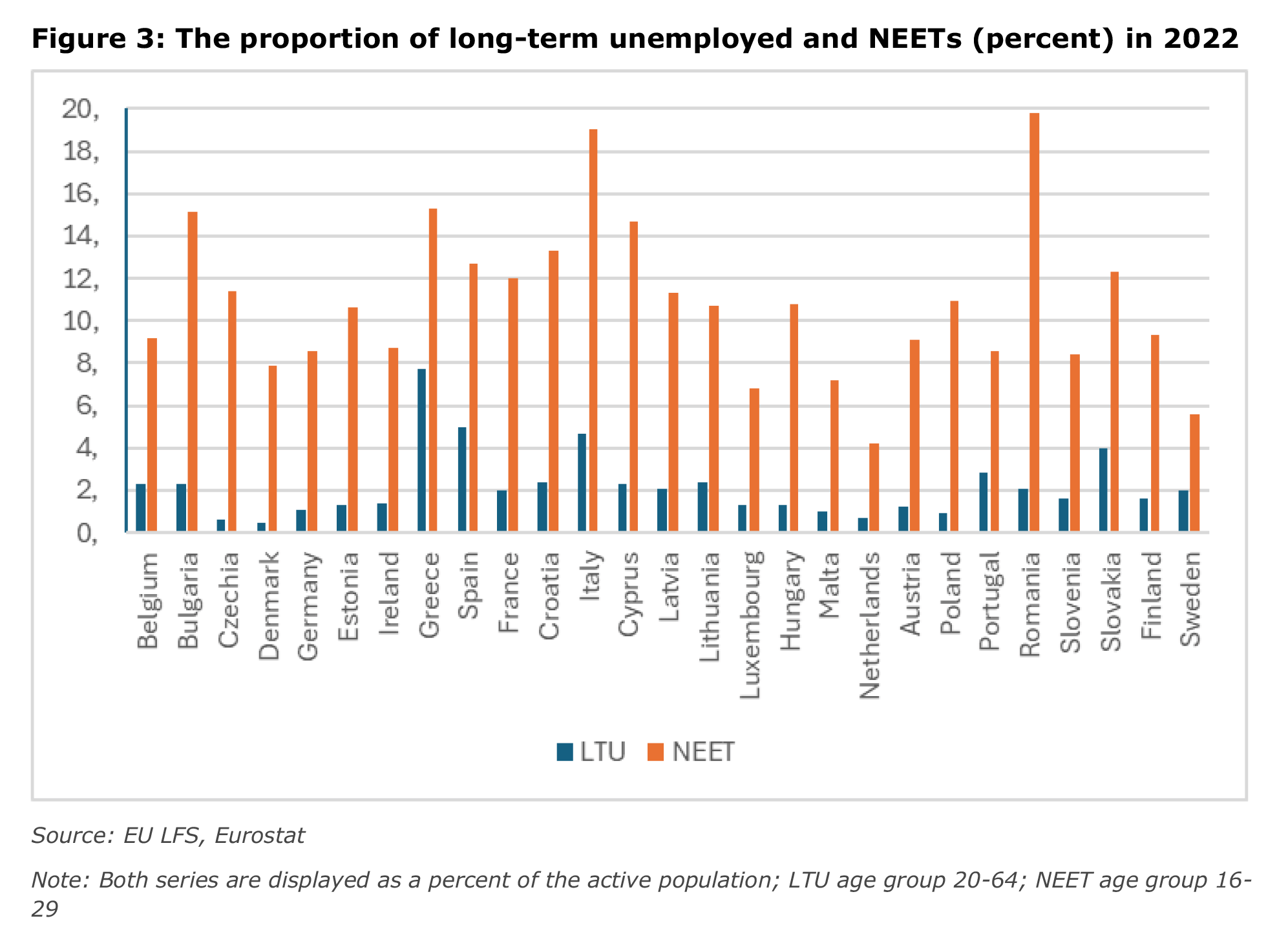The EU Commission highlights the need to address digital skills shortages by tackling vulnerable jobseekers
The European Commission organised a Thematic Review Workshop (TRW) on the Digital service delivery topic in Croatia, in November 2023 within the European Network of Public Employment Services.
This TRW aimed to examine this topic and how it concerns young people who are not employed, educated, or trained (NEETs), especially those who are long-term unemployed.
In that regard, the interesting Thematic Paper – PES digital services to successfully integrate vulnerable jobseekers has been recently published by the European Commission’s DG Employment. The paper can be downloaded here and it has been written by the senior researcher at Budapest Institute for Policy Analysis, Márton Csillag (European Network of Public Employment Services – PES Digital Services to Successfully Integrate Vulnerable Jobseekers).
 Recommendations in the paper include making better use of online service provision for experimentation and evaluation, strengthening online cooperation with complementary service providers, and enhancing post-placement online counseling, particularly for NEETs and the long-term unemployed.
Recommendations in the paper include making better use of online service provision for experimentation and evaluation, strengthening online cooperation with complementary service providers, and enhancing post-placement online counseling, particularly for NEETs and the long-term unemployed.
21 public employment services (PES) across Europe offer digital services to jobseekers, while 25 offer digital services to employers
These recommendations highlight the critical role leadership within public employment services (PES) and other organisations must play in ensuring that digital transformation does not leave anyone behind.

A persistent shortage of skills across Europe
The persistent skills shortage across Europe, particularly in the digital realm, poses a significant challenge for job seekers and employers. As the demand for digital competencies continues to rise, it becomes increasingly essential to equip the workforce with the necessary skills to thrive in the evolving job market.
Addressing this skill gap is not merely a technical or educational issue—it requires robust leadership and effective management within organisations.
Jobseekers with at least 80% of required competencies are more likely to secure jobs, specially if they emphasize targeted digital skills training
The paper reveals that job seekers are likely to secure jobs if they can prove they have at least 80% of the required digital competencies and emphasize their targeted digital skills training. On the other hand, an overwhelming 50% of vulnerable jobseekers, including those with low education levels, lack basic digital skills.
Over 50% of vulnerable jobseekers lack basic digital skills
Managerial staff and leadership are indispensable in navigating the complexities of skill shortages and ensuring that digital services are accessible to all, including the most vulnerable populations.
Leaders within PES and similar institutions must ensure that digital services are inclusive and accessible, particularly for those with limited digital skills. Initiatives such as digital vouchers to foster innovation and sustainability and promote new skills must also be reinforced. As an example, vouchers for digital skills training have been introduced in several countries like France and Croatia. However, participation among vulnerable groups remains low, at only 10% in Croatia compared to the 40% EU target. This involves identifying digital skill gaps and providing training tailored to the needs of the long-term unemployed and NEETs.
Managers can ensure that these training programs are accessible and engaging, incorporating tools like AI for job search counseling, as outlined in the report European Network of Public Employment Services – PES Digital Services to Successfully Integrate Vulnerable Jobseekers.

The Role of CEC European Managers in Supporting Social Dialogue
Social partners such as CEC European Managers play a pivotal role in this effort by supporting European Social Dialogue and fostering a collaborative approach to workforce development.
In that regard, CEC European Manager‘s working group on Digitalisation published the position paper Leadership and Partnership for a purposeful Artificial Intelligence.
Their involvement is crucial in advocating for policies that not only enhance digital skills but also ensure that these skills are distributed equitably across different demographics.
CEC European Managers and other social partners facilitate European Social Dialogue, particularly in digital transformation.
Social partners bring together key stakeholders, including employers, employees, and policymakers, to discuss and address issues related to skills development and employment.
Through their advocacy and collaborative efforts, they help shape policies that ensure digital skills training and other employment services are inclusive and accessible to all population segments.





